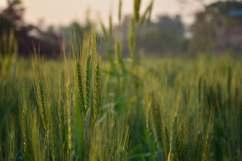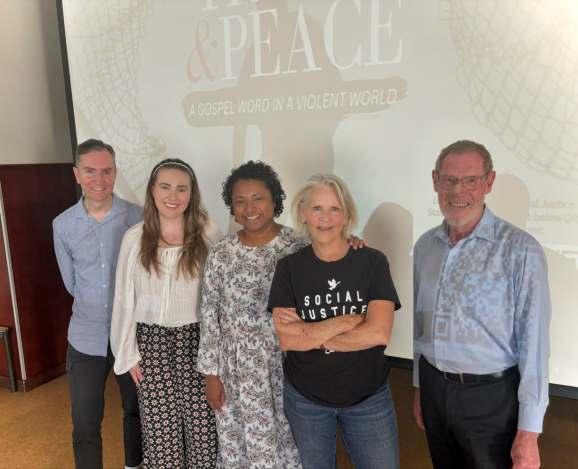





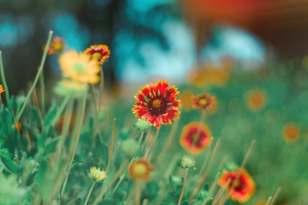









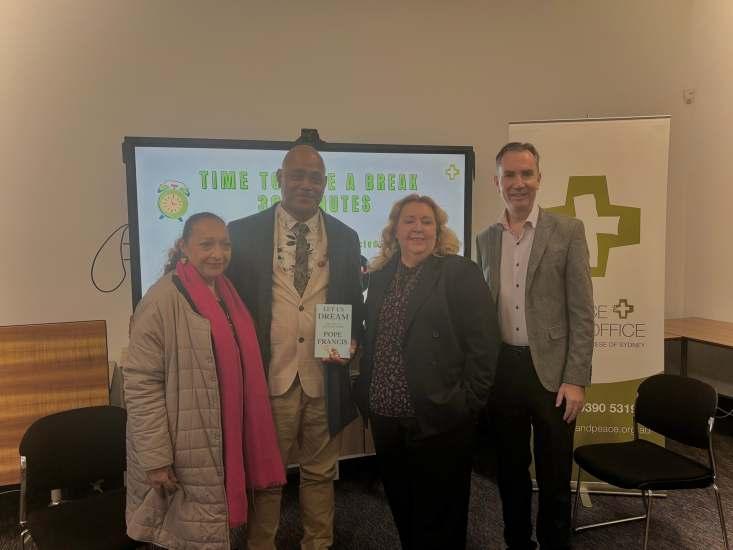




















The Catholic Archdiocese of Sydney acknowledges and pays respect to Aboriginal and Torres Strait Islander Peoples, as the First Nation Peoples of Australia, on whose ancestral homelands we live, serve, learn, worship and work; the homelands of Eora, Guringai, Dharawal, and Dharug peoples.
We acknowledge that this land was never ceded, and it remains a contested place. We wait to live in the right relationship with the country and her First Peoples.
We pay our respects to Elders past, present and emerging. We celebrate the histories, languages, cultures and spirituality of Aboriginal and Torres Strait Islander Peoples. We respect their continuing connections to Country and Sea of the world’s oldest living cultures over thousands of generations. We seek to learn and embrace their care and love of country.


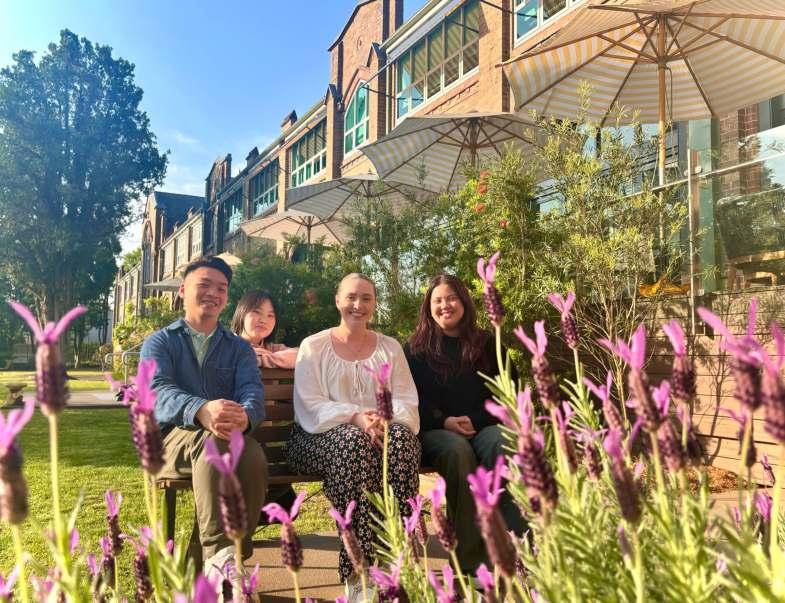


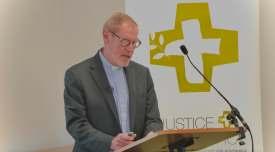

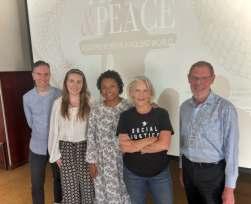


Fr Peter Smith
Promoter of Justice and Peace
Dr Julie Macken
Social Justice Facilitator
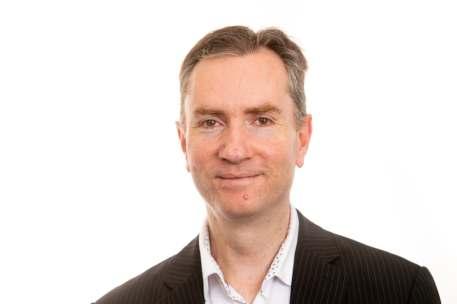

Dr Michael Walker
Social Justice Facilitator
Cailey Sharp
Social Justice Facilitator


Pauline Jasudason
Social Justice Facilitator




"Action on behalf of justice and participation in the transformation of the world appear to us as a constitutive dimension of the preaching of the Gospel, or, in other words, of the Church’s mission for the redemption of the human race and its liberation from every oppressive situation…"
The Justice and Peace Office is an agency of the Catholic Archdiocese of Sydney that promotes justice, peace, ecology and development through advocacy and activities based on the social teachings of the Catholic Church.
We strive to demonstrate faith through action in pursuing the common good and achieving social justice outcomes across society. We draw inspiration from the many Catholic advocates who, over the centuries, have fought tirelessly for better conditions in their communities. For us, this commitment comes to life in a “Show, Don’t Tell” approach, where actions speak louder than words.
At its heart, the Justice and Peace Office supports one another to move with purpose and compassion in that direction. We see our role as staying attuned to the Spirit, aware of the needs of our communities, local and global, and responsive to opportunities that create a more humane, compassionate, and inclusive world.
This requires us to advocate for those without a voice, envision better possibilities, and work together for a world where everyone can live with dignity and freedom.



As we head toward the end of another year, we look back in gratitude for the opportunities provided to the Justice and Peace Office to engage in our mission of promoting Catholic Social Teaching and Social Justice within the Archdiocese of Sydney and beyond.
The following pages tell part of this year’s story of events, education, advocacy and support for the marginalised, the disenfranchised, and the work to build a more just society.
In his Encyclical, Laudato Si’, Pope Francis wrote of the “cry of the earth and the cry of the poor”. How true this continues to be on the world stage as we witness the ongoing war in Ukraine, escalation of the war in Israel and ongoing and often forgotten conflicts in Myanmar and Sudan, amongst others. The climate crisis and degradation of our common home continues and disparity of wealth is growing exponentially: The refugee crisis shows no sign of abating and our Aboriginal and Torres Strait Islander sisters and brothers are still reeling after the failed referendum.
What follows, however, are some of the signs of hope in what can seem a broken world. I am continually inspired by wonderful people I come into contact with who are the beacons of hope attempting to ameliorate disadvantage in our world.
In these pages, you will read of the events and workings of the staff of the Justice and Peace Office who support, lead, and, at times, follow the way to a better world. I am indeed blessed to work with such a talented group and especially grateful to our newest member, Pauline Jasudason.
Further thanks and praise goes to the people in parish groups, priests and religious, and the network of not-for-profits with whom we partner. Special thanks again this year to the PAYCE foundation for their financial support of our events.
As always, may we continue to
“act justly, love tenderly and walk humbly with our God”
Micah 6:8




Pope Francis reminds us that the culture of Aboriginal and Torres Strait Islander people is precious, with much to offer the Catholic Church around the world.
"Your culture, which shows the lasting genius and dignity of your race, must not be allowed to disappear. Do not think that your gifts are worth so little that you should no longer bother to maintain them. Share them with each other and teach them to your children. Your songs, your stories, your paintings, your dances, your languages, must never be lost."
Despite the sorrow and disappointment of losing the referendum for an Aboriginal and Torres Strait Islander Voice to Parliament, we recognised the need to move forward with the Archdiocese’s plan to establish the process for reflection, truthtelling and relationship-building under one Reflect Reconciliation Action Plan (RAP) was more urgent than ever.
This is a process in four parts. Last year, we concluded the first step, the Reflect RAP. As the year draws to a close, we are launching into the second stage of this journey, the Innovative stage. An Innovate RAP is used to develop, test and establish the best approach for advancing reconciliation in our workplace. Like the first step, this stage is based on the three core pillars of Relationships, Respect and Opportunities.
Perhaps seeing the process as essentially relational is a good way to understand how we are progressing and, at times, regressing in our journey. Like with all relationships, there are times of recognition, joy and laughter, and then there are times when we realise we have been making assumptions that are wrong and have not understood how our actions can be hurtful and denigrating. This is all part of this journey. And like true friends, true family, we continue to walk together to learn from each other, we learn to say sorry for harm done, for times when our ignorance was a source of rejection and pain.
This is the journey we are all called to take as we seek reconciliation with First Nations peoples. The Archdiocese aims to build a patient, staged and sustainable program of healing, respect and reform through an active truth-telling process guided by the Aboriginal and Torres Strait Islander Advisory Group.







Curious Grace began as a vision—a community hub in the heart of your local neighbourhood, nestled in a local parish, where you can find a welcoming space dedicated to nurturing mental health and well-being.
After 18 months of planning and training, Curious Grace launched its first drop-in centre on March 3rd at St Canice Catholic Parish. It evolved into precisely that: a model of companionship, creativity, and community, offering those who enter an opportunity to feel seen, heard, and supported.
The need for accessible, community-based mental health support cannot be overstated. In a landscape where one in five Australians experience mental health challenges each year, the limitations of traditional mental healthcare— often marked by long wait times and financial obstacles—leave many without the support they need. Curious Grace drop-in centres offer a warm and judgment-free space where support is immediately available, bringing care into the heart of the community, within familiar spaces and among trusted faces.
Whether someone seeks connection through a casual conversation over coffee, joins in activities like knitting or chess, or engages in a peer-led creative session, everyone is welcome.
Curious Grace has not only offered mental health support but has helped normalise these meaningful conversations within our community, reducing stigma and shifting the perception of mental health as a natural aspect of life. When friends, neighbours, and parishioners join openly in conversations about mental health, it sends a clear message that seeking help is both a strength and a communal responsibility.
If you or your parish is interested in getting involved, please check out St Canice Catholic Parish: https://www.stcanice.org.au/community/parish-community/
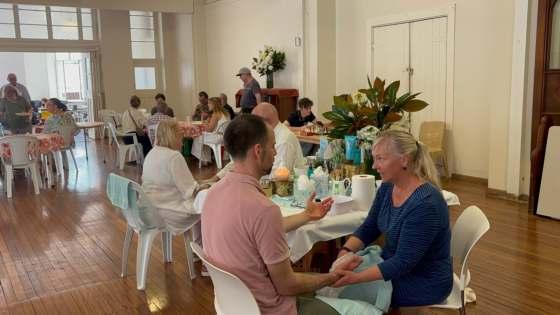




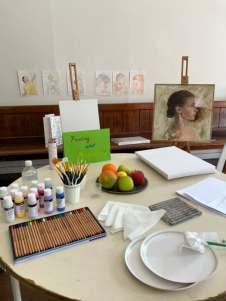



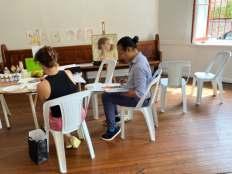
In expanding this mission of bridging accessible mental health support to our most vulnerable community members, the JPO has developed three mental health toolkits as part of Mental Health Awareness Week 2024, each tailored to a different audience: one for Adults aged 25 and up, one for Young People aged 1524, and one for Parents of young people within this age group. These toolkits serve as comprehensive resources designed to educate, normalise, and spark positive conversations about mental health.
Each toolkit addresses a range of mental health challenges, including depression, anxiety, stress, screen dependency, substance misuse, and bipolar disorder. For adults, the toolkit aims to provide self-care strategies and resources for understanding one’s own mental health needs, as well as fostering resilience in personal and professional settings. For young people, the toolkit offers relatable guidance on identifying signs of mental health struggles in oneself and friends, along with practical coping mechanisms that emphasise empowerment and peer support. Recognising the importance of parental involvement, the toolkit for parents equips them with tools to understand and support the mental health of their children, providing insights on how to hold compassionate, non-judgmental conversations and identify early signs of mental health challenges.
By providing these resources, we hope to break down barriers around mental health discussions, making it easier for people of all ages to access support and understand that mental health care is both necessary and normal. Each toolkit emphasises the importance of mental health as part of overall well-being, encourages open dialogues, and addresses the unique needs of each group. We believe these toolkits will be invaluable in supporting individuals, families, and communities in the journey toward greater mental wellness. By scanning the QR Codes below, you can access each online version. Please visit our website to obtain a printed copy: https://justiceandpeace.org.au/mental-health/
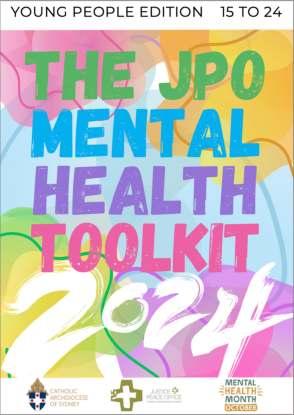
Young People
Parents & Carers
Adults




International Women’s Day is a time to reflect on the courage, endurance, and love needed to transform our culture from one of inequality to one of true equality. And with women bearing the brunt of violence in our homes, places of work and education, and, of course, in the immigration detention regime that is now infamous for its cruelty, women are rising to the challenge.
On the eve of International Women’s Day, the House of Welcome, Josephite Justice Network, and the Justice and Peace Office worked together to host an evening of listening to the lived experience of four women: Noor Azizah, Dr Paula Sanchez, Khatereh Nazari, and Dr. Rimple Mehta.
The panellists were generous in sharing their own stories of torture at the hands of the Chilean dictatorship of Pinochet, of fleeing the genocide of the Rohingya people by the Burma junta, surviving the predations of life on Nauru at the behest of the Australian government, and recording the lives and loves of women incarcerated for crossing borders.

The fact that the evening sold out in the first week is a testament to the desire to hear the truth and answer the call to imagine a new Australia. One capable of creating a sustainable, legal and humane immigration policy.
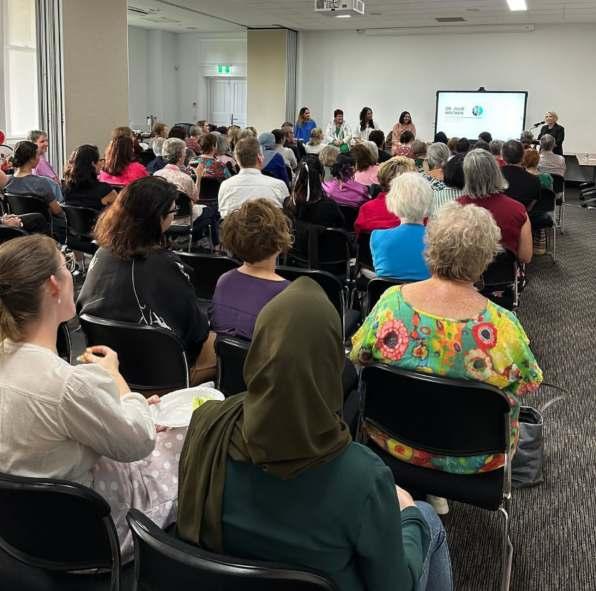
The campaign to see a Royal Commission into Immigration Detention continued with an even greater sense of urgency. In the final sitting week of this Parliament, we were confronted by possibly the most lethal legislation we have seen in immigration detention.




Labor proposed a raft of new rules and policies that would see vulnerable families, children, mothers and fathers deported to countries where they risk persecution, violence, or even death. The Bill would ban entire groups of people from coming to Australia based on arbitrary, unspecified criteria; it would imprison those who refuse deportation, even when facing life-threatening danger, cut off access to lifelines by taking away mobile phones from those in detention, leaving them isolated from family and legal aid, and finally, the Bill would enable invasive strip searches, degrading and dehumanising people in detention.
Without a Royal Commission, both major parties will continue down this perilous path to gain the political advantage that now comes from creating divisions and fear.
To get the campaign under steam, we created the Detention Reform Coalition (DRC). This is a coalition of religious organisations, community groups, people seeking protection, refugees, service providers, medical professionals and workers who are calling for a Royal Commission into Australia’s Immigration Detention regime.
The DRC aims to contribute to the global body of work to establish a rights-based detention framework, building strategies to end Immigration Detention and implement alternatives that provide safety, dignity and security.
We believe a Royal Commission will be critical to achieving these goals.
In January 2023, the coalition for a Royal Commission was established to create support and strategies to achieve reform by exposing:
The financial mismanagement, and corrupting influence of this detention regime; The systemic psychological and physical abuse of refugees, people seeking protection and young Australian workers; and How Australia exports a policy that will result in ‘the normalisation of crimes against humanity.
Our Vision is simple and compelling.
It is that Australia legislates an immigration policy that is sustainable, legal and compliant with international treaty obligations.
2025 is the year we may see this journey begin in earnest




Wellbeing economics challenges the assumption that economic growth and GDP measure everything. On May 24th, the Justice and Peace Office held a Symposium on the Wellbeing Economy, exploring the overlap of the public discussion around Wellbeing Economics with the notion of Ecological Economics(LaudatoSi’Goal3).Thatis,sustainableproduction,fairtrade,ethical consumption,divestmentfromfossilfuels,andinvestmentinrenewableenergy.

The event focused on Catholic and secular perspectives on the paradigm shift. Frontline testimonials were given on the reality of the GDP economy: Moe Turaga (modern slavery survivor), Donna Boyd (Redfern CSC), and Fiorella Vayda (parishioner at St Peter’s Surry Hills). Presentations were given by members of the Justice and Peace Office to offer a Catholic insight on Ecological Economicswithacase-studyexample.
A panel discussion (pictured) comprising Kristen Baker from the Commonwealth Treasury, Jenney Stanger from the Australian Catholic AntiSlavery Network, and Professor Sharon Bessell from Australian National University focused on Wellbeing Economics across various sectors, concluding thepresentations.
Videos of several of the presentations, including those from our office, are now available through our YouTube channel, shown below:

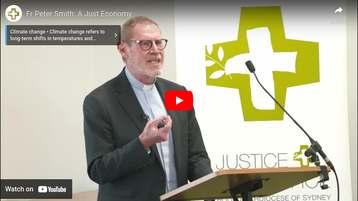









The day concluded with small break out groups that addressed four themes:
Divestment and positive investment
Language and story; breaking through the belief that “There Is No Alternative” to the GDP economy
How do we value non-financial goods adequately? How do we advocate for change?
The day was the catalyst for further thinking and reflection in our office around ecological economics. In the months following the symposium, Social Justice Facilitator Dr Michael Walker reached out to attendee Phil Jones from the Broken Bay Diocese and Sue Martin from the Parramatta Diocese to form the nucleus of a Sydney Degrowth Group to promote Laudato Si’s message of ecological conversion.
The group (pictured) held its first meeting in November with a commitment to meet regularly into 2025.





The Night of Lamentation, now recognised as the Homeless Persons Memorial Service, was held on Friday June 21st in Martin Place, Sydney to honour and commemorate the lives of those who have died on the streets in the past year. Marking its fourth year, the service was supported by the End Street Sleeping Collaboration, Justice and Peace Office, Catholic Cemeteries and Crematoria, PAYCE Foundation, and Vinnies Vans.
During the opening blessing, Fr. Peter Smith stated:
“We’re here tonight to love them, to know them, and to mourn them. Maybe their names aren’t known to all of us, but we are a people of faith. We know that God holds each one of them in the palm of his hand, that he knows each one of them by name, and loves each one of them.”

He also expressed hope that the city could become a better place by supporting those on the margins.
Nearly 50 names were read aloud by Bishop Terence Brady and Patricia Thomas from Catholic Cemeteries, with many more remaining unidentified. PAYCE Foundation estimates that 140 people experiencing homelessness die each year in New South Wales.
Lastly, Bishop Brady highlighted the hardships of living costs, remarking, “We are way beyond just cost of living. It’s all just blown out of proportion. Put simply, I don’t know how people can be expected to get by these days. This memorial certainly puts that
NSW Minister for Homelessness Rose Jackson MLC also attended and spoke at the gathering. Music was performed by the Sydney Street Choir and the Honeybees, adding a hopeful note to the solemn occasion. A short video has been created to showcase the evening.




“Sydney Alliance is a diverse coalition of community organisations, religious organisations, unions and schools that uses the tools of community organising for the common good - to make Sydney a more just, fair and sustainable city.”
In a significant win for civil society, the NSW Government agreed to ban nogrounds evictions for renters. Our rental system has carried the presumption that renting is a temporary solution for people who will eventually buy a house. For many people, including the majority of younger people, home ownership has become a pipe dream and they are likely to rent for their entire lives. This policy came about through a Sydney Alliance/Tenants Union campaign that our office supported since early last year. No Grounds Evictions were the central ask of our citizens assembly in Westmead. Below are some snapshots from the Sydney Alliance Renters Forum held earlier this year.


Since early this year, we have also been working closely in a Truth Telling planning group with fellow members of Sydney Alliance. The aim of the planning group was to make a more conscious effort to build relationships and create culturally responsive and safe spaces with Aboriginal and Torres Strait Islander Peoples and leaders within Alliance organisations. There has also been a commitment to develop an action for an issue affecting First Nations communities.
Since March, the group, with the consent and oversight of First Nations members, has been developing Culturally Responsive Practice (CRP) Training for members of the Alliance, actively campaigning for the current NSW Age of Criminal Responsibility to be raised from 10 to at least 14, and also discerning an action plan that advocates for better funding for Aboriginal Community-Controlled Organisations so they can better support transition in Out of Home Care for First Nations youth.





On July 25, the Justice and Peace Office, on behalf of the Archdiocese of Sydney, Parramatta Diocese, and the Diocese of Broken Bay, gathered at the Epping Club for our annual Triodiocesan evening to discuss and reflect upon the 2023-2024 Social Justice Statement Listen Learn Love: A New Engagement with Aboriginal and Torres Strait Islander Peoples.
As Catholics, the statement called for us to renew our engagement with the First Peoples of Australia and to listen to Aboriginal and Torres Strait Islander peoples with the spirit of love and humility. In the lead-up to the Australian Indigenous Voice referendum in October of last year, the Bishops invited First Nations people to speak directly about their experiences of injustice and their hopes for the future.

With the disappointing outcome of the vote to parliament referendum and the continued shame it brings, NATSICC Chair John Lochowiak (pictured) spoke to a full house at the Epping Club about where he sees the way forward for Reconciliation in Australia.
Guests were invited to reflect on the outcome and share their thoughts in table talk discussions.
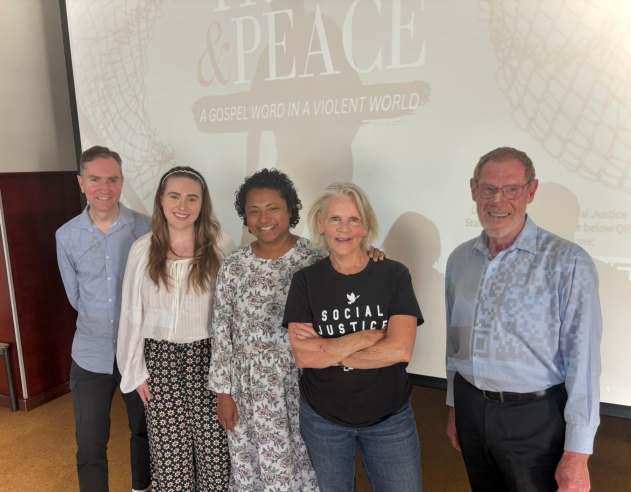





To delve into this year's Social Justice Statement, our office hosted a hybrid gathering in late August at St Columba’s parish in Leichhardt North, where about 50 participants gathered in person and some attended virtually.
The statement titled Truth & Peace: A Gospel Word in a Violent World looked at the inter-connectedness of truth and peace in the world and how to build peace “in the light of the Gospel”.
The statement opened with a foreword scrutinising the troubled times in which we live, why this is so and whether peace is achievable. It discussed the impact of the ‘post-truth’ culture in eroding what we hold to be true about God and our worth and value as human persons. Finally, it sought to present the elements we need to rebuild truth, trust and peace.
Two of these were ‘a culture of dialogue’ with those who hold different beliefs and ‘a culture of encounter’ – both required to break the insular bubbles in which we tend to now exist - the ‘echo chambers’ created by algorithms and social media. Both dialogue and encounter are grounded upon recognising the dignity and rights of all people. The statement stresses this point further with the fact that our God is a God of encounter and dialogue. He is the logos—the word, thought, reason, principle, but also, in Jesus, the dialogos—who lived in encounter with us.
The participants discussed the statement in groups to brainstorm practical actions parishes and communities could take. A great starting point was the, by no means exhaustive, list presented at the end of the statement. This included personal and community prayer, practising listening, and much more. Ideas for practical action from the discussions included drafting letters of support to Catholics in West Papua as well as hosting table talk conversations with affected peoples.
The day segued into presentations from three parishes regarding social justice actions each has embarked upon. These included efforts in supporting refugees and Care for Creation.
















The Season of Creation is an annual ecumenical celebration from September 1st to October 4th. This year, the theme was ‘Hope and Act with Creation.’ As such, Catholic Earthcare, as part of CARITAS Australia, hosted a three-day convocation highlighting three main themes: Wonder, Weave, and Heal. The event was held in a hybrid capacity to reduce its carbon footprint.
On the first day, Dr Michael Walker and Cailey Sharp presented a workshop on how to live Laudato Si’ by acting locally, calling to care for people left to fall in the cracks of society. Curious Grace drop-in centres were used as an example of how to bring local parishioners and marginalised individuals together in relationships of care. Later, Fr Peter Smith spoke on “The Just Economy,” highlighting the problem of constant fixation on both GDP growth and the economy is harming the social and physical environment. Fr Peter exemplified how economic management and concern for the environment can be held in balance. Videos of our presentations are available on our YouTube.
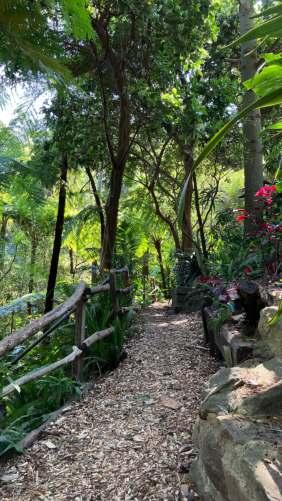
The final day called for participants to gather at local hubs across Australian dioceses. In Sydney, the local hub was St Francis Xavier’s parish in Lavender Bay. Parishioners from the North Sydney ecology group (pictured) gathered in person for the third session.
This was followed by a ‘lectio natura’, a reflective walk in nature, in the nearby Wendy Whiteley’s Secret Garden.


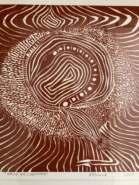


“Working towards comprehensive national peace and security.”
Much of the public conversation about security moves inexorably towards a limited notion of military security which is only a small part of the picture and, if taken in isolation, can act to undermine other forms of security.
The Justice and Peace Office supported the formation of the Australian Peace and Security Forum (APSF), a new organisation dedicated to promoting a broader understanding of security that encompass matters such as climate insecurity, water scarcity, pandemic readiness, diplomacy, and the need for peace building.
The Forum’s founding members include many eminent public figures including former Chief Scientist of Australia Prof Penny D Sackett, Em Prof Ian Lowe, Prof Anne Poelina, Prof John Langmore, and Major General Michael Smith (ret’d) AO.
The Forum was launched by independent MP Andrew Wilkie on September 24 and has since hosted two further webinars, exploring human security and water security.
In 2025, the Forum will be pressing the Australian Government to initiate a process of public consultation for a comprehensive National Security Strategy, something that the country currently lacks.
Stay informed on APSF by visiting the below social media accounts:










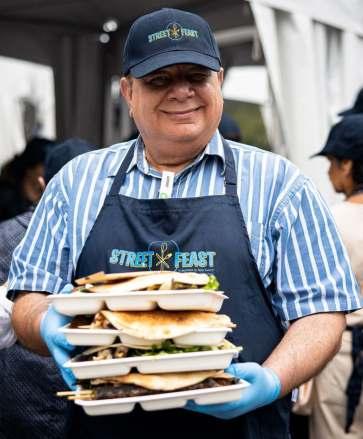
“Let us love, not with words but with deeds.” Pope Francis, World Day of the Poor 2017
Hundreds gathered in the forecourt of Sydney’s mother church, St Mary’s Cathedral, on November 15th to celebrate the sixth annual Street Feast.
For the Justice and Peace Office, Street Feast began with the idea of hosting a simple sausage sizzle in response to Pope Francis’ World Day of the Poor on 19 November 2017. Now, it is a mass feast and celebration for Sydney due to the continued generosity and support of groups such as St Merkorious Charity, who provided hundreds of meals on the day, as well as the funding of the PAYCE Foundation. Since its beginning, we have been joined by Thread Together, St Vincent de Paul, Catholic Care, and many more. This year, in particular, we were supported by over 100 parishioner volunteers who dedicated their day to serving and conversing with strangers in need of good company and warm hospitality. Sydney Street Feast was attended by members of all levels of government, including the Governor of NSW, Margaret Beazley, Federal Member for Sydney, Tanya Plibersek, NSW Attorney-General, Michael Daley and Lord Mayor of Sydney, Clover Moore.
To commence the occasion, Fr Peter stated:
“It’s up to all of us to see these people and give up some of our valuable time to stop and talk to them, to get to know them and realise the struggles that they go through.”
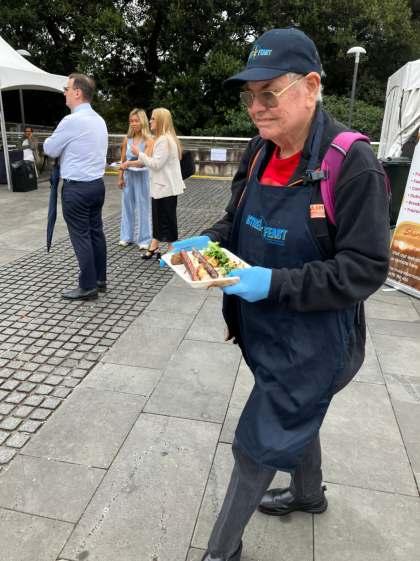




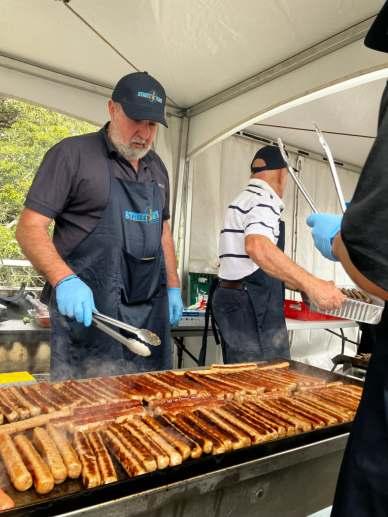
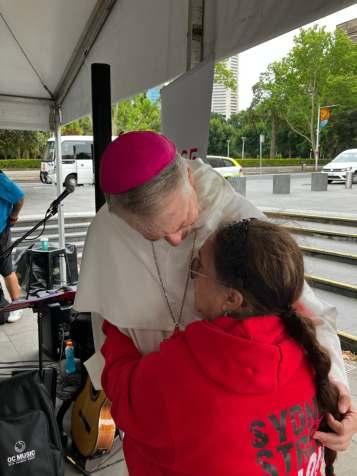





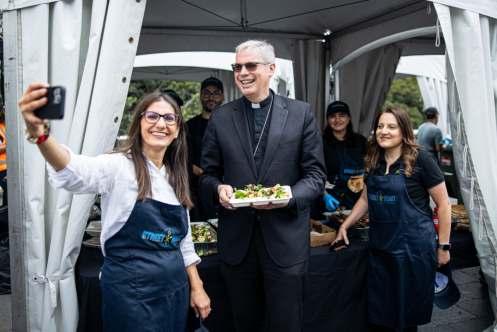
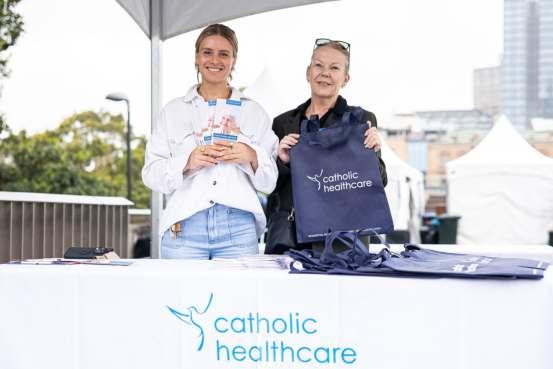


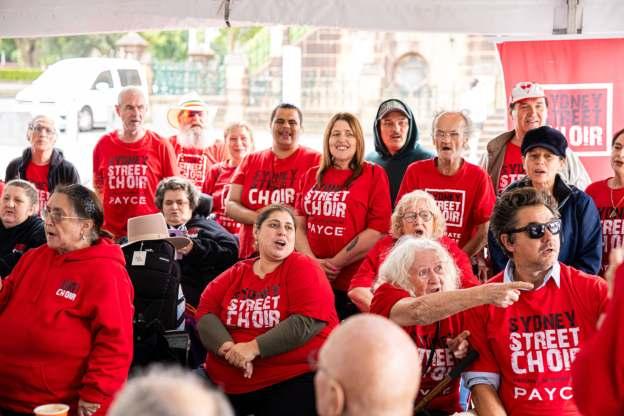












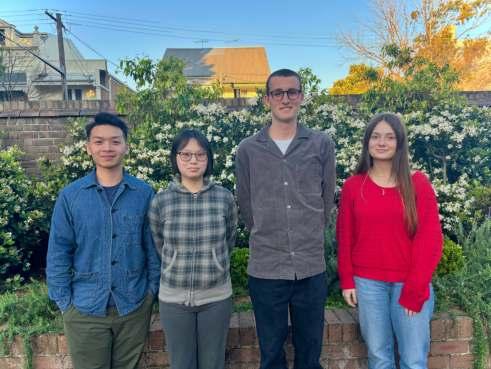
The Justice and Peace Office’s Internship and Mentoring Program offers students a unique opportunity to gain real-world experience and actively contribute to impactful social justice initiatives. Beyond the classroom, our interns dive into the heart of community advocacy and practical research, exploring how Catholic Social Teachings (CST) align with addressing contemporary issues.
With guidance from the JPO team, students have the chance to develop and manage their own research projects, delving into topics such as Mental Health, Homelessness and Housing, Raising the Age of Criminal Responsibility, Climate Change, and Environmental Responsibility, among others.
This past year, we were delighted to host four intakes, welcoming 13 dedicated students from institutions like Australian Catholic University, TAFE Ultimo, and the University of Technology Sydney, representing diverse fields, including Social Justice, Community Services, Communications, Business, Criminology, and Law.
Through collaboration, mentorship, and hands-on project work, these students cultivated skills that will aid them in their future careers while fostering a profound commitment to social equity and advocacy.
In the coming year, we aim to expand our program and invite more young advocates across the Sydney region to join us.




The Justice and Peace Office Sydney took the lead on a range of vital conversations this year, transforming dialogue into concrete actions that address pressing social issues. Through collaborative discussions and campaigning for change, we helped anchor initiatives that drove positive change in our communities.
In a submission to Parliament on March 1st, we called for a complete root-andbranch rethink of our approach to public housing. We suggested a Viennastyle housing approach that offers a mix of three forms of social housing.
Days later on March 12th, Economist Michael Pascoe made the same call in the New Daily.
In August, a poll of leading economists also supported this measure to tackle housing affordability. The only measure they thought would be more helpful was streamlining planning approvals.
On both community radio and our podcast since April, our office has been calling for high speed rail along the eastern seaboard to tackle both housing affordability and CO2 emissions.

In July, the Government launched a website and social media pages for the High Speed Rail Authority and announced a public meeting in Newcastle




Since March, our office has actively advocated for stronger regulations and thoughtful limits on social media use, recognising its profound effects on young people’s mental health and well-being.
In September, the Government proposed a social media ban with age limit legislation. Instagram has since responded with a ‘kidfriendly’ version.
Also in March of this year, interfaith leaders, including the JPO’s Fr Peter Smith, called on the NSW Premier to announce a Parliamentary Drug Summit. In a letter released by The Australian, Fr Peter said, “The issue is of paramount importance for our communities. It affects so many lives every single day.” Fr Peter and other faith leaders urged the government to “get on with” the 2024 Summit in Parliament. Fr Peter later wrote, “Our failure to act appropriately on drug use and dependency in our community comes with an enormous cost –in both human and financial terms. We must give this the time and attention it rightly deserves. We recognise that there is a need for change, and a 5-day Parliamentary Drug Summit is a good start.”
Later in July, NSW Premier, Chris Minns, announced a drug summit and 12 new drug and alcohol hubs to be developed across NSW. The four-day drug summit was announced to be held in Sydney later this year on December 4th and 5th. Minns said the summit would bring people together to find “new ways forward”.




This past year, we embraced a fresh and strategic approach to our online presence, focusing on expanding our reach and broadening our horizons. We challenged ourselves to use social media effectively, harnessing it to engage in intentional and meaningful dialogue surrounding social justice issues.
On Instagram and YouTube, we continued strengthening our engagement, reaching new audiences and maintaining consistent growth in followers, likes, and comments. Through a mix of thought-provoking posts, videos, and infographics, we fostered a vibrant online space where discussions around social justice issues could thrive while also keeping our viewers informed.
Not to mention, we also joined TikTok! We explored how to expand our reach and engage with younger audiences. So, we created videos that brought social justice themes to life in more creative ways while also including video content that encapsulated the issues we advocate for. One of our standout videos received over 42,000 views, with most of our videos receiving between 1,000 and 6,000 views each - showcasing the potential of TikTok for raising awareness and engagement on critical community and global affairs. Surprisingly, we engaged not only younger generations but equally older ones!
In addition to our visual storytelling on social media, we introduced a secondary podcast, SOSJ: Have Your Say, alongside our primary podcast, Speaking of Social Justice. This new platform provides a dedicated space for our interns to explore topics that resonate with their unique perspectives and experiences. Weekly episodes have covered topics ranging from Climate Wars and Housing in Australia to the meaning behind various Catholic celebrations, including the Lenten season. SOSJ: Have Your Say has become a powerful tool for connecting listeners with the voices of emerging advocates who share insights into the most pressing issues of our time. It is a space for young people, by young people.
Our platforms have become more than just channels for sharing updates— they are vibrant, interactive spaces for fostering awareness, education, and connection around social justice.


https://justiceandpeace.org.au/







